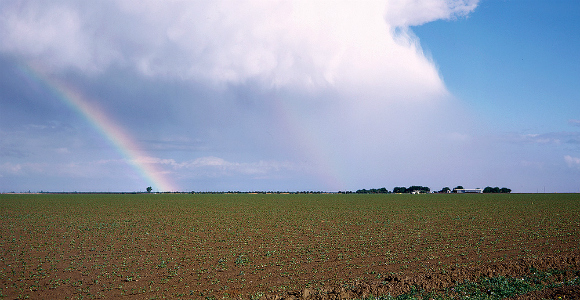
Central Valley farm. (Photo Credit: Greg Thomas/Flickr)
EDITOR’S NOTE:
California’s Community Colleges play a vital role in the critical mission of creating a workforce that is prepared for the 21st century economy in the Golden State. To align our workforce preparation with local economies means understanding not only what drives the regional economy, but understanding how the region connects to our larger state economy.
We have been watching (and participating) this year in a thoughtful public and private policy series that was convened by the West Hills Community College District called “Essential Elements for the Future of the San Joaquin Valley.”
We asked two of the District’s leaders to share their thoughts:
THE ESSENTIAL FUTURE OF THE SAN JOAQUIN VALLEY
by Frank Gornick, Ph.D. & Stuart Van Horn, Ed.D.
While the plight of California’s Central Valley has made national and international headlines, local and regional political voices are often not widely heard beyond the Valley.
There are challenges around important issues that impact the Valley, like water, energy and trade/logistics industries. Coalitions of willing partners who can help amplify local perspectives and put a face on Central Valley issues are vital to meeting those challenges.
That’s why we created Essential Elements for the Future of the San Joaquin Valley, a three-part public and private policy series held in 2014. The initial series focused on water followed in June with energy and concluded last month with trade, logistics and exports. We attracted more than 300 opinion leaders, Valley stakeholders, businesses, state cabinet leaders, and educational leaders.
We learned that the best case for the future of the Central Valley will require:
- Creative thinking from the public policy sector;
- Putting a face on the Valley and individual lives affected, emphasizing the continuing drought, pending fracking legislation, and burgeoning trade and logistics sectors in the seven-county region known as the San Joaquin Valley;
- Accessing and employing the most effective tools from science, engineering and technology to responsibly advance technological applications;
- Building coalitions to ensure adequate resources and investment in the Central Valley during what is likely to be a dramatic transition period, and;
- Focusing locally on training and retraining that will help boost opportunities for employment and contribute to an improved quality of life as the region continues its transformation to a progressively more sustainable future.
The contributing role of education to all of these areas will be of paramount importance during what is expected to be a period of accelerated change. West Hills, in concert with other influential organizations and other educational institutions, must provide leadership in developing Career and Technical Education programs and preparing the people of the Central Valley to take advantage of emerging opportunities in order to successfully prevail during what, for many individuals, will be a personally challenging period of adjustment.
It is important to amplify the voices of the Valley, articulate and communicate shared values and build new alliances in order to meet one another as people—not as sectors or silos. Coordinating the many “moving parts” will require time and dedicated effort and we understand that time is a precious commodity in today’s busy world.
But we must find the time because the task is so important.
A collective effort must be made to construct a compelling story that outlines the agricultural and human value represented by the Central Valley. The Valley and its vigorous agricultural communities are capable of adapting to worldwide markets and to the water, energy, and trade resources likely to be available in the next decade.
The sometimes fierce policy debates engage organizations of all stripes, public and private, state and federal, research and advocacy; some with broad-based concerns, others with narrowly-defined interests driven by constituent or statutory imperatives. The West Hills Community College District, by virtue of its mission, vision and demonstrated history of service to a major portion of the Central Valley has a reputation as a neutral, but effective convener.
What will we at the West Hills Community College District do to advance these goals?
For this effort the District is prepared to:
- Focus people’s attention through continuous communication, community awareness, advocacy, and public education efforts;
- Reiterate the sense of urgency;
- Apply pressure to key stakeholders without overwhelming them; and,
- Frame issues in a way that presents opportunities, particularly those relating to training, retraining, and ongoing professional development that emphasize the latest, most effective approaches to sustainable agriculture and beneficial advances in related technical fields.
Wish us luck.
Frank Gornick, Ph.D. is chancellor and Stuart Van Horn, Ed.D. is vice chancellor of the West Hills Community College District.

